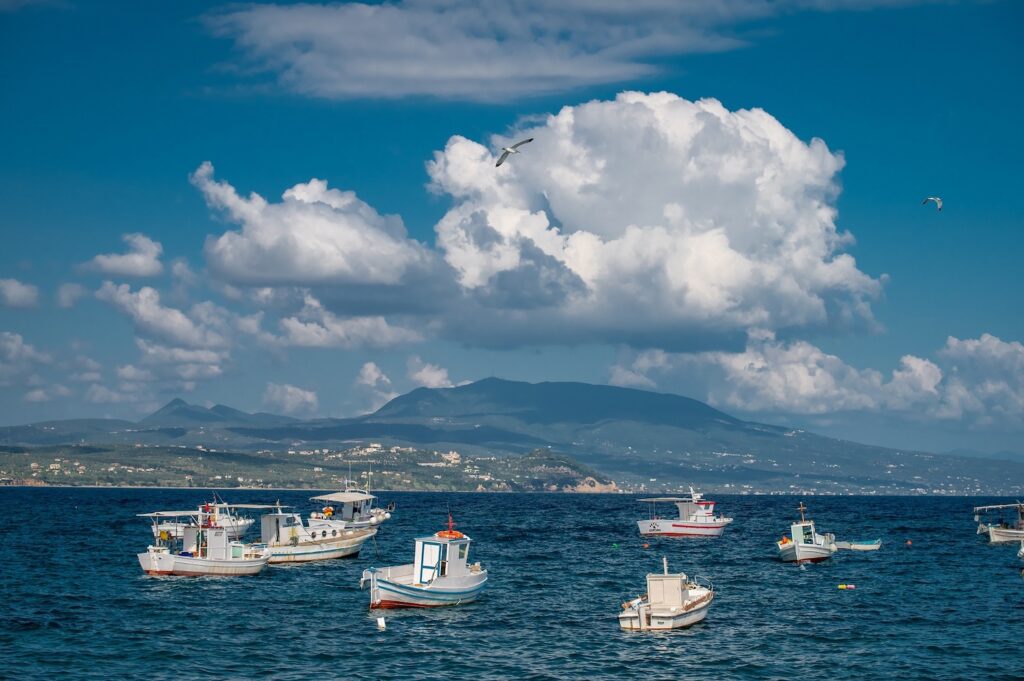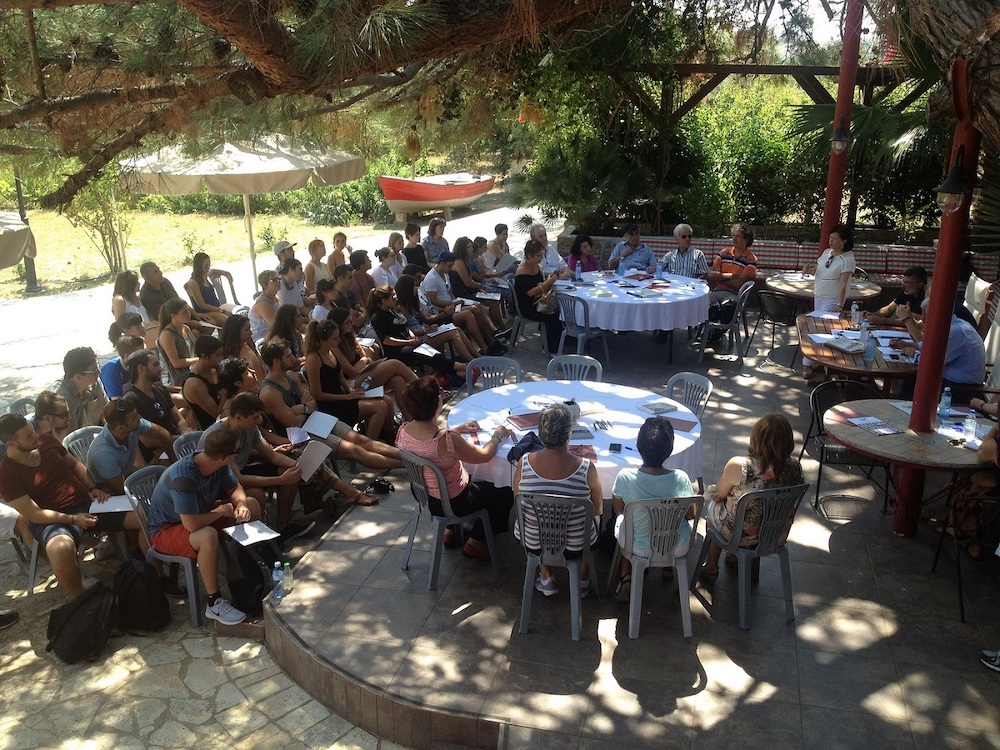Koroni, Greece
UNESCO emblematic community of the Mediterranean Diet.
Koroni (Κορώνη) is a town in Messinia, a region in the south-east of the Peloponnesus in the south of Greece. The town of Koroni, inhabited by 1,668 people, is located in the bay of Messinia, 45 minutes south-east of Kalamata, the capital of the prefecture of Messinia. The town nests on the side of a hill, where there is an impressive Venetian castle, witness of historical exchanges, and reaches the sea, including the uninhabited island of Venetiko.
At the southwestern tip of the Peloponnese Region (Greece), in the south of Messenia, where lies a small coastal town in the center of a region with lush vegetation and beautiful beaches… Koroni!
Koroni, a picturesque town by the sea, is built on the eastern edge of the Municipality of Pylos-Nestor. Koroni and Methoni, facing each other, constitute the two sister-cities which guard the Messinian first finger of Peloponnese. During the Middle Ages they were called “the eyes of Venice.”
Koroni stands proudly on a promontory surrounded by strong walls and bears a long history. It has a harbor and a beautiful seacoast. Modern Koroni is situated in the region of ancient Asini. It has always been an “apple of discord” among the major powers that have controlled the coastal area of the Peloponnese throughout the ages, due to its strategic position and its importance for trade and maritime traffic. Koroni guarded the seaways and ports from marauding pirates, and provided safe refuge for pilgrims heading for the Holy Land during the Crusades. Franks, Venetians, Turks and Genoese are some of the several major powers who conquered the region and left behind them indelible marks of their presence.
The Fortress of Koroni is one of the most famous fortresses of Greece. Among the few castles in Greece that continue to be inhabited, located on the hilltop, it dominates over the town of Koroni. As we presently see it, it is a typical example of Venetian defensive fortification architecture.
Besides its famous fortress, another symbol of Koroni is the church of Virgin Eleistria, patron saint and protector of the city. Rooted in the very soul of the inhabitants is a deep faith in the Holy Mother of Christ. Many visitors, attracted by the miracles they have heard and moved by the dedication of its inhabitants, embark on a pilgrimage. Some by curiosity and others by a deeper need. Historical data, narrations from travelers, myths and beliefs, constitute the maypole of this unique corner of Messinia. The fortress is a living part of the city.

During high season, Koroni is crowded with visitors, both locals and foreigners, yet it obstinately keeps its relaxed, cool, authentic Greek lifestyle. Its climate, soil, agricultural production, stunning natural diversity, extraversion, cosmopolitan character (legacy from the past), constitute Koroni’s Mediterranean landscape. One should not ignore its limpid blue waters, cloudless sky, golden sandy beaches, vast olive groves, green valleys, vineyards, fig trees and pears that dominate the picture.
The Mediterranean Sea, which provides through the years a natural, hospitable environment, a combination of sun, sea, weather and geophysical landscape, and its historical location create conditions for the creation, development and coexistence of a variety of cultures. A basic characteristic of the area is the relatively abrupt and sloppy complex landscape of compound succession of Mediterranean forest areas and olive tree groves.
This feature is a comparative advantage for the sustainability of the ecosystem, through the use of innovative tools. After all, biodiversity is required for the preservation of life on earth, as it is the foundation of the chain of goods and services provided by ecosystems and contributes decisively to human well-being. Human decisions that affect biodiversity, affect the well-being of human life as well as other organisms. In addition, understanding the value of biodiversity and investing in knowledge of its proper management and protection can contribute to supporting economy and making ecosystem benefits available to society.
Koroni’s agricultural production is based on traditional methods, in order to preserve and pass down important elements of local identity to the younger generations. Koroni’s fertile plain produces olive oil, the world known “Koroneiki” variety, olives, raisins, wine, figs, wheat, vegetables, legumes, herbs and dairy products, as well as poultry, sheep and goats which are also part of the Mediterranean diet. A basic component of human evolution is that people and societies are in direct dialogue with the natural environment that surrounds them. The Mediterranean basin influenced -and still does, not only the social and the economic life of its inhabitants but also cultivated a common cultural heritage… the Mediterranean Diet.

Koroni is a model of local community in which the representation of traditional structures of culture, customs, raw materials and local food products as well as all other manifestations of social life are accompanied by a rich table. Knowledge, practice, traditions and socializing around the table are part of the Mediterranean Diet.
For the people of the area, food is not simply nutrition but it is also associated with all expressions of social life. These gatherings are what brings us closer to each other, reinforce social relations and play a central role in social events. Food is praised in folk music, stories, proverbs and maxims as seen in oral folk tradition. These celebrations and festivities attract a large number of visitors. Starting from religious festivals, local anniversaries, jamborees and revelries, Koroni seems to be celebrating all year round. Events associated with traditions, customs and nature connected with local agricultural production are also remarkable.
All the above mentioned, constitute not only a set of eating habits, but also a complex cultural system which includes the relationship between man and nature, landscape and its sound management, customary rituals, songs, oral traditions, especially rich local knowledge on the qualities of foodstuff which is a common property of local residents.
The Mediterranean Diet is widely recognized as a dietary model with significant benefits in people’s health and wellbeing .
